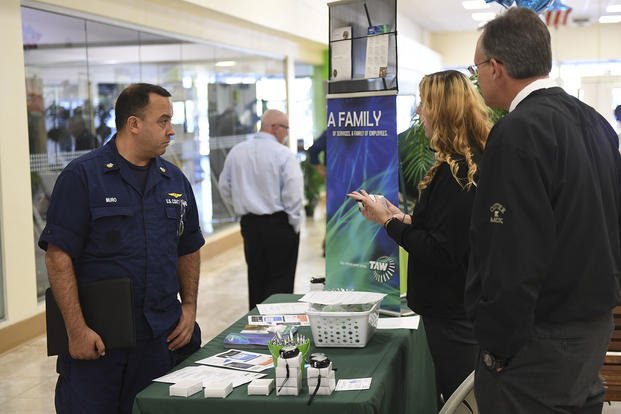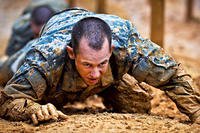Civilians can be pretty clueless about the life of a service member.
A steady diet of media stereotypes, mixed with understandable ignorance, skews the average citizen's perspective on America's armed forces. Unfortunately, this isn't limited to people you meet on the street. Stereotypes and preconceptions can affect transitioning service members where it might hurt them the most: behind the desk of someone conducting a job interview.
The numbers are clear -- veterans suffer from a higher unemployment rate than average Americans. To understand why, University of Texas-San Antonio (UTSA) College of Business Ph.D. student Christopher Stone has conducted research on what factors affect hiring decisions of veterans. According to (e) Science News, Stone hopes to use the results of this research to stimulate higher employment numbers among veterans.
"Despite the fact that there is documented proof that veterans have a much harder time finding and keeping jobs, there has been limited academic theory or research that focuses on understanding why this is happening and how to solve the problem," Stone said. "Stereotyping and a lack of understanding of how military skills transfer over to civilian roles are only a few of the factors that often prevent highly capable veterans from being hired."
The factors involved include:
- Attributes of the veteran
- Attributes of the observer
- Nature of the job
- How well raters understand military skills transferring to civilian skills
- Perceived difference in civilian and military roles
To address these variables, Stone has determined that there are a number of different steps veterans can take to circumvent stereotypes and help their chances in landing a job. While most of the suggestions pertain to change on an organizational level, he has a few tips for veterans themselves.
One of the first tactics is called impression management. Although it sounds abstract, it just means that your job understands how employers may perceive you and actively work against their preconceptions. This strategy involves mentioning health conditions and disabilities off the bat and connecting with hiring managers.
Another strategy is to simply find role models, mentors or advisers. Whether you think you're on top of the world or at the bottom of the barrel, talking to a third party can help keep you on track with your job search. It doesn't take much to reach out, and if you can find someone willing to work with you, you'll have a solid understanding of yourself as a professional.
Stone is an Air Force veteran, and while he experienced success upon transitioning out of the military, he recognized that many of his fellow former service members did not.
"While most everyone agrees that veterans' unemployment is an important problem to be addressed, few have answers regarding what to do," said Mark L. Lengnick-Hall, UTSA management professor. "Christopher Stone's research will lay a foundation for understanding the barriers veterans face when they return to the civilian workforce and how to overcome them."
Want to Know More About the Military?
Be sure to get the latest news about the U.S. military, as well as critical info about how to join and all the benefits of service. Subscribe to Military.com and receive customized updates delivered straight to your inbox.











